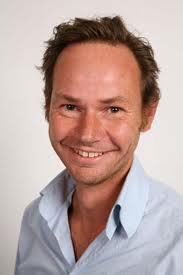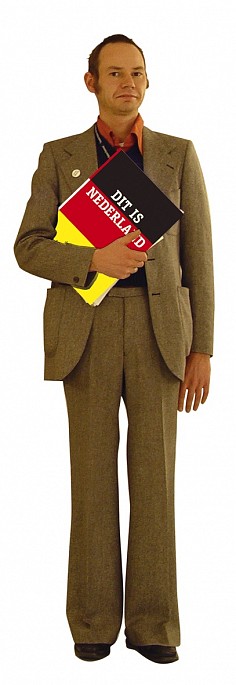In workshops on costume, set design, video and sound, Martijn Engelbregt and the students will explore the subject of health and its relationship with one’s own body. The results will be shown in individual theatrical installations and a joint final presentation.
Production and Stage Management students learn the skills they need to become production managers, stage managers and creative producers. The department is using the AIR programme to examine how upcoming performing arts professionals can relate to the inspired artist while developing their own vision and defining their own position in the relationship. Previous guest artists at the department were theatre director Paul Koek, conductor Ed Spanjaard and choreographer Ugo Dehaes. Visual artist Martijn Engelbregt’s period as AIR will complete the department’s four-year exploration of artists working in all these disciplines. It has developed an educational programme where students use their aptitudes, vision and position in the field to learn how to work with and alongside artists.
About Martijn Engelbregt
Martijn Engelbregt is a researcher, processual artist, collector, statistician and founding managing director of EGBG. Using relatively simple means he reveals the inner workings of complex bureaucratic structures. Engelbregt’s positive message transforms spectators into participators; they sense they are being invited to look in a different and creative way at supposedly generally accepted notions. He designs installations, institutions, organisations and companies using his own forms, surveys, reports and procedures inspired by existing structures and situations. The blurred distinction of reality and art in Engelbregt’s work often leads to heated debate. Celebrated examples include his form to give to undocumented immigrants, or the Tegenscript (AntiScript) used to interrogate telemarketers. Engelbregt’s BETER Consortium is an artwork examining whether art affects health. In the coming season, he will continue his study of health in a variety of projects –including the AIR programme and participating students from the Production and Stage Management Department.
The Artist in Residence (AIR) programme is run by the Art Practice and Development research group in collaboration with the various institutes making up Amsterdam School of the Arts. The results of the AIR programme are disseminated inside and outside the school through the ON AIR periodical.

